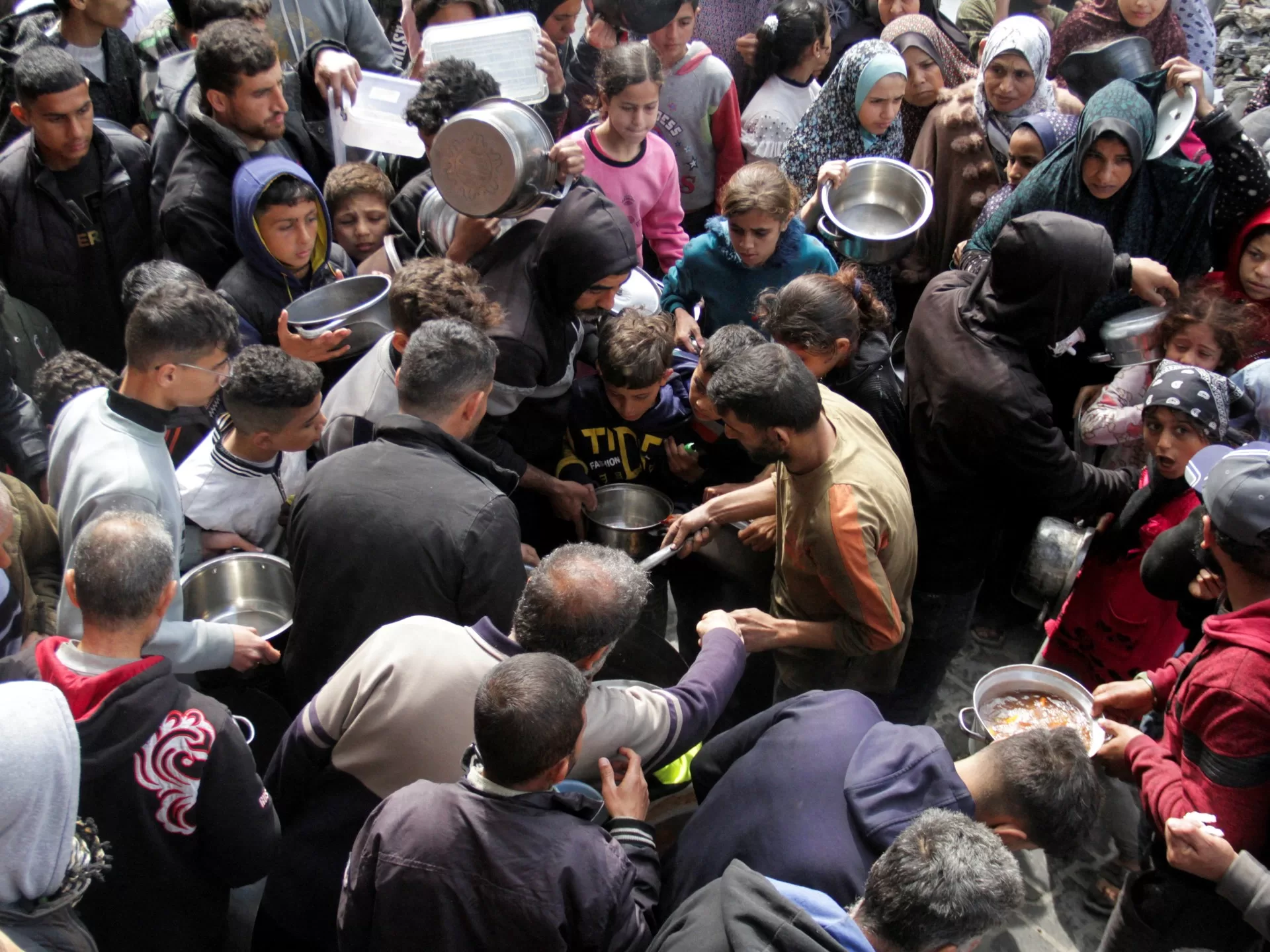In a set of new provisional measures, the World Court asked Israel to open more land crossings to allow aid into Gaza.
The ICJ judges said in an order on Thursday that Palestinians in Gaza face worsening conditions of life and famine and starvation are spreading.
“The court observes that Palestinians in Gaza are no longer facing only a risk of famine … but that famine is setting in,” the judges said. “At least 31 people, including 27 children, having already died of malnutrition and dehydration according to the United Nations Office for the Coordination of Humanitarian Affairs,” they said.
In its legally binding order, the court told Israel to take “all necessary and effective measures to ensure, without delay, in full co-operation with the United Nations, the unhindered provision at scale by all concerned of urgently needed basic services and humanitarian assistance” including food, water, fuel and medical supplies. The ICJ, however, does not have a mechanism to enforce its rulings.
The new measures were requested by South Africa as part of its continuing case that accuses Israel of carrying out genocide in Gaza.
In January the ICJ, also known as the World Court, ordered Israel to refrain from any acts that could fall under the Genocide Convention and to ensure its troops commit no genocidal acts against Palestinians in Gaza.
In Thursday’s order, the court reaffirmed the January measures but added Israel must take action to ensure unhindered provision of basic services and humanitarian assistance to Palestinians throughout Gaza.
The judges added that this could be done “by increasing the capacity and number of land crossing points and maintaining them open for as long as necessary”. The court ordered Israel to submit a report in a month after the order to detail how it had given effect to the ruling.
There was no immediate comment from Israel on the order.
The crippling shortages come as Israel continues to severely restrict supplies of humanitarian aid to Gaza and presses on with its military assault, which began more than five months ago.
Israel launched its war on Gaza after Hamas fighters from the territory led an attack on southern Israel on October 7, killing at least 1,139 people, mostly civilians, according to Israeli statistics.
The Israeli assault has killed more than 32,500 people, mostly women and children, according to Palestinian authorities. More than 80 percent of Gaza’s 2.3 million residents have been displaced and entire neighbourhoods have been levelled in Israel’s bombardment and ground invasion.
Changing situation
The court said that earlier orders imposed on Israel “do not fully address the consequences arising from the changes in the situation” in Gaza.
Al Jazeera’s Gabriel Elizondo, reporting from the UN headquarters in New York City, said the new measures are meant to act as “an enhancement if you will, or a highlighting of some of the provisional measures that were already announced”.
According to Elizondo, the ICJ said that these are meant to be “modifications to the previous provisional measures that were announced due to the change in the situation in Gaza”.
“When the first provisional measures came out in late January, Palestinians in Gaza were facing risk of famine, and the ICJ is now saying – that famine is now setting in,” Elizondo said.
This is a way for the court to tell Israel “the situation has gotten a lot worse”, Elizondo said, and that the ICJ expects Israel to abide by the measures.
In a written response earlier this month to South Africa’s request for more measures, Israel said that claims by South Africa in its request were “wholly unfounded in fact and law, morally repugnant, and represent an abuse both of the Genocide Convention and of the Court itself”.
